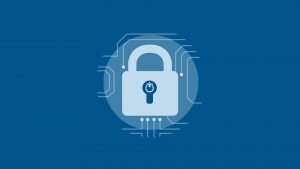Data Privacy Day
January 22, 2020

January 28th is Data Privacy Day!
How Can You Protect Your Data
- Use anti-virus software and a firewall on your personal devices – Protect yourself against malware that may potentially steal or modify data on your device. Keep your anti-virus software up to date. New protections can be released daily. You can enable the firewall on your device to further protect yourself online.
- ITaP offers free Immunet AntiVirus software for personal Windows machines, under Antivirus and Security Software on the Community Hub,communityhub.purdue.edu/storefront/.
- Avoid unused programs – Be sure to declutter your devices from apps or software you don’t use. Other than saving resources, this can protect you from vulnerabilities that might exist in those unpatched programs. They have potential to allow an attacker to gain access to your device.
- Keep your software up to date! – Software patches are essential fixes for vulnerabilities that might exist. Having your device up to date can greatly improve your protection.
- Dispose of sensitive or confidential information properly – Make sure to remove or encrypt sensitive data. PNW ISS performs scans for sensitive information regularly, but you can initiate scans on PNW owned workstations using software called Spirion. This program will allow you to scan and shred any sensitive information. If you have a physical copy, shred documents or ensure that it is in locked file storage. Storage should only be accessible to authorized individuals!
Good Privacy Practices
- Submitting your email online can open up the door to unwanted spam – Consider having two different personal email accounts. The primary personal account can be used for essential (non-PNW) communications, while the secondary account can be used for nonessential personal usage (e.g. shopping, newsletters, etc.).
- Avoid using your debit card for online purchases – Your credit card typically offers more protection against identity theft and can help limit the impact on you. Debit cards immediately deduct charges from your account, which can allow an attacker to charge your bank account before you even realize.
- Avoid saving your password on websites – If your device gets compromised, then a remote attacker with access to your device can easily log into accounts.
- Evaluate your security settings on social media – These sites are used to share information, but you can restrict what others can see on your profiles.
- Do business with credible companies. Before supplying any information online, consider the answers to the following questions: Do you trust the business? Is it an established organization with a credible reputation? Does the information on the site suggest that there is a concern for the privacy of user information? Is legitimate contact information provided? If you answered “No” to any of these questions, avoid doing business online with these companies.
- Do not use your primary email address in online submissions. Submitting your email address could result in spam. If you do not want your primary email account flooded with unwanted messages, consider opening an additional email account for use online. Make sure to log in to the account on a regular basis in case the vendor sends information about changes to policies.